What Dog Owners Need To Know About Worms
Like any other owner, you want your pup to be a strong happy rascal. A healthy diet and warm love are great, but there are certain diseases out there that can hurt your canine friend. Worms are notorious for causing problems for pups, especially young ones. Most of the time preventative treatment and shots will keep these parasites at bay, but it is better to be safe than sorry.
The many types of worms
Heartworms are one of the most renowned parasites that your pup can get. It is delivered by mosquitos when they feed off your pup and the larva enters the bloodstream. The worms collect primarily in the heart and associated areas, hence the name heartworm. Preventative measures are common as veterinarians vaccinate regularly and offer treatments for this condition.
Aside from the notorious heartworm, there are other types of parasite that feed off of your pup. Tapeworms are a rather uncomfortable parasite that feeds in your pup's digestive system. Like in a human, the worm saps energy by absorbing the B vitamins in the intestines. Pups will normally be less active as their energy levels are dropped. As the tapeworm drops segments and they pass out of your pup and into the yard and appear to look like wiggling grains of rice. Flea larvae will feed on the segments which contain eggs. The flea then feeds on your pup and when your doggy gets the itch, they will scratch, lick and bite. If the flea gets eaten, the larvae will spawn in your pup's belly and produce tapeworms. Keeping other animals out of the yard, and the yard or litter box clear of fecal material will reduce the chances of your pup catching this parasite.
Roundworm is a very nasty parasite especially in young pups. It is contracted commonly through infected dirt or feces but can pass from mother to pup easily. In a young pup, the eggs hatch in a pup's stomach and move into the lungs by way of the circulatory system. Here they will cause coughing and vomiting. As they cough the larvae up, the parasite is re-ingested and enters the intestines. The effects are diarrhea and vomiting which can put a damper on your pup's activities. As a pup ages, commonly around six months, they develop a natural resistance to roundworm, but young puppies are very susceptible to the parasite. Keep curious pups safe by making sure their environment is clean and healthy. They want to explore the world and everything in it, so make sure that they don't discover any parasites.
Both hookworm and whipworm are vicious blood suckers- literally. They feed off of your pup's blood. These parasitic worms are contracted through infected dirt and feces or through the mammary glands of the mother. The parasites hatch in your pup's intestines and latch on to the surface, feeding off of your pup's blood. These are a more difficult problem to diagnose as the worms are not as easily noticeable in stool. Pups will usually suffer from less energy and diarrhea. If the condition is disregarded, and the infestation grows too large for too long- anemia can develop in your pup. It is a condition when the red blood cell count becomes low, and your pup will become far less active.
Keep your yard clean along with your dog litter box
These parasites can definitely ruin your pup's day. The best preventative measure you can do is to make sure your pup gets their regular shots and vaccinations. Aside from that, it is recommended that you keep your yard clear of fecal material. If you have a grass litter box, be sure to be consistent in clearing poop. Because these parasites can transfer to us humans as well, cover up playground equipment and sand boxes to prevent other animals from doing their business there. Keep your pup vaccinated and keep your yard clear of parasites so that your pup will be able to enjoy a healthy lifestyle.

 Scottish Terrier Breeder Interview: Cindy Cooke Tells Us About Scotties
Scottish Terrier Breeder Interview: Cindy Cooke Tells Us About Scotties
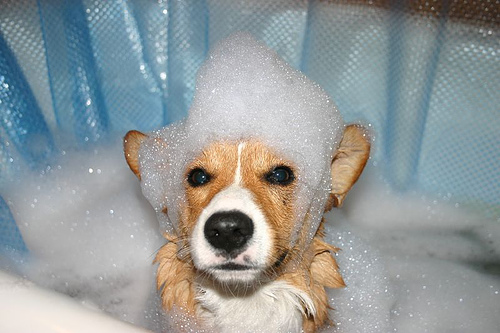 Tub Time For Dogs! Hints and Tips for Bathing Your Dog!
Tub Time For Dogs! Hints and Tips for Bathing Your Dog!
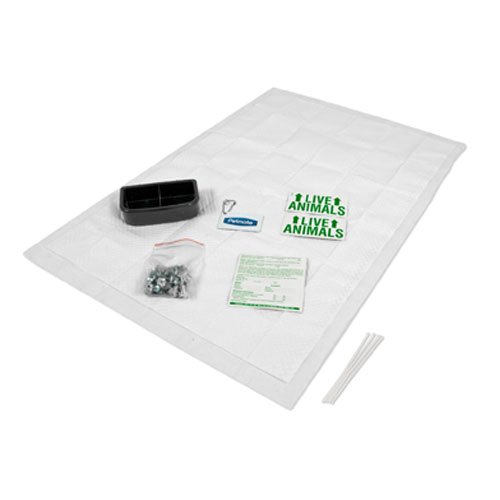 Traveling Safely with your Pet
Traveling Safely with your Pet
 Saying Goodbye to a Pet
Saying Goodbye to a Pet
 Top 10 Most Intelligent Dog Breeds
Top 10 Most Intelligent Dog Breeds
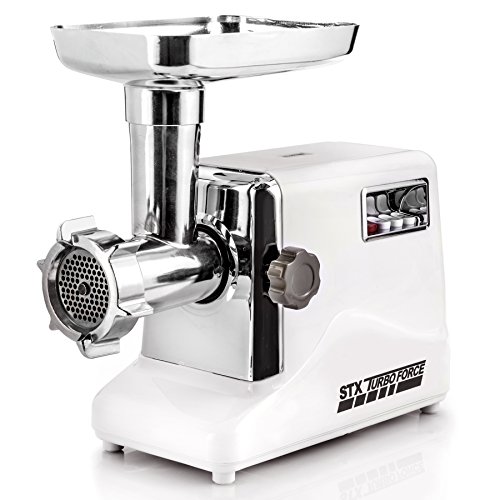 Canine Nutrition and Wellness Part 2: Feeding Your Dogs Homemade and Unprocessed Meals
Canine Nutrition and Wellness Part 2: Feeding Your Dogs Homemade and Unprocessed Meals
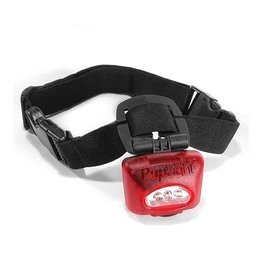 Puplight Dog Safety Light Red
Using a Puplight is a great
Puplight Dog Safety Light Red
Using a Puplight is a great
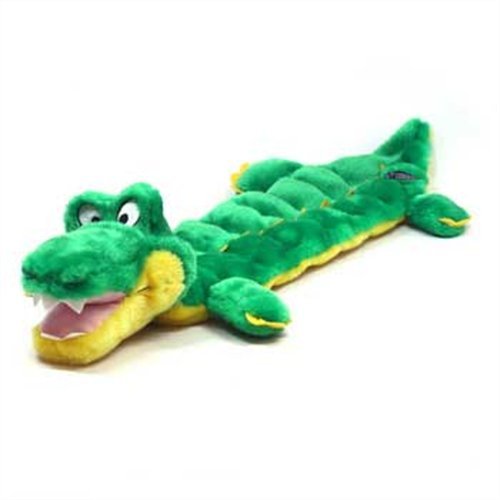 The Five Laws of Choosing Toys for Blind Dogs
Finding good toys for blind
The Five Laws of Choosing Toys for Blind Dogs
Finding good toys for blind
 How To Prepare For Getting Your First Puppy
So its that time in your lif
How To Prepare For Getting Your First Puppy
So its that time in your lif
 Where Can I Find a Dog for My Family?
Animal Shelter in Iowa, Washington
Cr
Where Can I Find a Dog for My Family?
Animal Shelter in Iowa, Washington
Cr
 How to Choose a Puppy
Hes cute, but how big will he get? Cred
How to Choose a Puppy
Hes cute, but how big will he get? Cred